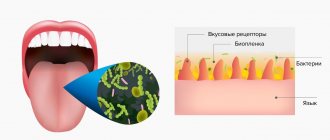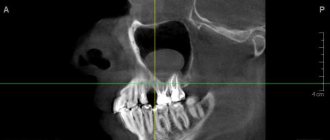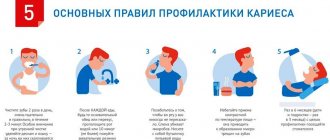In cases where bad breath is bothersome, the first thing people pay attention to is the oral cavity. They also remember what products were consumed and what could cause this situation. It’s good when everything gets by with the fact that the trouble turns out to have happened because of the onion or garlic that was eaten. But it happens that the smell is a symptom of stomach diseases. In such cases, you should pay attention to your health and eliminate the cause.
What does an unpleasant odor mean?
Halitosis is a phenomenon of bad breath.
This phenomenon of bad breath is called halitosis. In fact, there are quite a few reasons that can cause such trouble.
But, if we take into account that this problem is related to the stomach, it is worthwhile to find the cause and possible disease as quickly as possible.
A very common problem that contributes to bad breath is problems with the digestive system. Everyone knows about such a disease as gastritis, many are even familiar with it. This is the first, most common disease, which gives such a symptom as halitosis.
Also, a disease such as an ulcer gives the same symptoms. Accompanied by bad breath, there may be dysbacteriosis, flatulence, constipation, diarrhea, gastroenterocolitis, duodenitis. There are stomach diseases that are caused by bacteria, viruses, allergies, all of which can cause halitosis.
This symptom can occur due to both food and drug poisoning.
How to get rid of bad breath
Some sensitive issues are not usually discussed even with close relatives. People tend to turn a blind eye and ignore them for a long time, especially if the solution requires consulting a specialist. In such a situation, many choose the path of least resistance - folk recipes and various remedies that can be used at home. As a rule, they are ineffective, but such a choice does not require much effort and suits the person until the problems reach frightening proportions.
The scenario described above is more than typical for the symptom discussed in this publication. Bad breath is not something to discuss. The rules of good manners do not allow others to point out the problem, and the person himself prefers to think that it is not so big.
In everyday life, this symptom of chronic somatic diseases or dental pathology is often described with the vague formulation “bad breath.” Doctors and dentists use the more correct and unambiguous term “halitosis.” Breath with a “smell” most often indicates the development of certain diseases. It is not necessary to discuss the situation with loved ones, but if bad breath appears, it is extremely important to undergo a diagnosis that will reveal the true causes of halitosis.
Causes
Not all causes of halitosis are a cause for concern. In a certain percentage of cases, it’s all about the banal consumption of certain foods or drinks that have pronounced aromatic properties. An example would be garlic, onions or fish - foods with a specific aroma. Exogenous causes include smoking. Tobacco often causes bad breath, which the smoker himself does not even notice. But these reasons are obvious, and it’s easy to fight them. It is more difficult (and more important!) to solve a problem that has no obvious causes.
In order to get rid of bad breath once and for all, which has been bothering you for a long time and is not associated with exogenous causes, it is important to find out what causes its appearance. Endogenous (internal) causes can be divided into two categories.
The first category is diseases of the oral cavity. It is oral disease that is the root of the problem in the vast majority of people with halitosis. Dental diseases that can lead to bad breath are discussed in more detail in the next section of the publication.
The second group of causes is formed by chronic diseases of the stomach, other parts and organs of the digestive system, and diseases of the endocrine organs. The greatest danger is diabetes mellitus, both type 1 and type 2. This endocrine pathology is characterized by the appearance of an “acetone” odor. It is caused by metabolic disorders: the patient’s body increases the formation of ketone bodies (organic compounds), which are excreted through the lungs and give the breath a specific “acetone” smell.
Parents should be wary of this symptom (smell of acetone). If a child develops a symptom, you should immediately consult a specialist and undergo an examination, a mandatory element of which is a glucose tolerance test and a blood sugar test.
Note that in rare cases, the unpleasant odor of acetone is associated with dietary habits. In recent years, the so-called ketone diet, which requires maximum restriction of carbohydrate intake, has become very popular. Its goal is to transition the body into a state of acidosis, in which there is an increased formation of ketone bodies. Because these organic substances are partially eliminated through the lungs, followers of the ketone diet often face the problem of bad breath.
Halitosis in dental pathology
Gastrointestinal diseases (gastritis, stomach ulcers), diabetes mellitus or the ketone diet are conditions that people are generally well aware of. The only exception is undiagnosed diabetes, so if the smell of acetone appears, it is extremely important to promptly seek qualified help.
If bad breath appears against the background of “complete well-being,” its causes should be sought in dental pathology. It is very important to understand that oral diseases are the main causes of halitosis in people without chronic endocrine or somatic pathology. If you are interested in the question of how to get rid of bad breath, carefully study this section of the publication. This way you can avoid common mistakes, forget about the problem forever and, most importantly, keep your teeth intact and healthy.
In diseases of the oral cavity (often they are not diagnosed, that is, the person may not be aware of the problem), the unpleasant odor has a specific, slightly “putrid” character. At first, a person notices the symptom, mainly after sleep, before carrying out morning hygiene procedures. Then the problem of bad breath becomes a constant companion, which causes serious concern.
Caries
What diseases provoke the appearance of halitosis? In the first place is caries. Carious tooth damage is accompanied by the development of pathogenic microflora. Bacteria produce toxins that cause inflammation in the oral cavity. In addition, bacteria emit gaseous substances, which themselves have an unpleasant odor.
The degree of carious lesion directly affects the severity of halitosis. The deeper the microorganisms penetrate into the tooth, the stronger the unpleasant odor. The problem can only be solved by complete removal of the affected tissue with restoration of the defective tooth.
The only right decision is to seek help from a specialist without any extra thought or doubt. Make an appointment with your dentist, otherwise the tooth will continue to decay. Once a critical amount of living tissue has been destroyed, restoring the tooth will require expensive orthopedic treatment.
Periodontitis, fistula in the gum
Purulent inflammation around the root apex is the result of untreated caries and pulpitis. An apical abscess can manifest itself as a symptom such as the formation of a fistula on the gum. A fistula is the external opening of a canal connecting a cyst to the oral cavity. Through the fistula, pus is released, which is accompanied by the appearance of a characteristic unpleasant odor.
Poor hygiene
Are there other causes of halitosis besides tooth decay? Undoubtedly. Bad breath can be the result of poor oral care. If a person brushes their teeth sporadically, or does it too quickly or not thoroughly enough, a bacterial film forms on the surface of the teeth. Over time, this soft film, which can be easily removed with a regular brush, becomes saturated with mineral salts. This forms hard stone on the teeth, which can no longer be removed with a brush.
The basis of dental plaque is bacteria, which release toxins and gaseous substances, causing inflammation of the oral mucosa. Due to these processes, the breath acquires an unpleasant odor.
Gingivitis, periodontitis
Hard dental plaque is a harbinger of dental caries and a number of other oral diseases. If you do nothing, sooner or later you will face more serious problems than halitosis. Many people begin to notice that their gums bleed during daily brushing. These are the first symptoms of gingivitis, in which an inflammatory process develops in the gum mucosa.
Gingivitis left untreated (or treated with home remedies that are ineffective) leads to the development of periodontitis, an oral disease that poses a real risk of tooth loss. At this point, many remember that it all started with poor hygiene and bad breath, and the problem was easily solved by hygienic teeth cleaning in the dental office.
How to get rid of bad breath?
Even today, in the age of maximum availability of information about various symptoms, their causes and treatment methods, many people continue to pose the question differently: how to get rid of bad breath at home? Is this possible, and if not, why?
Fresh breath, which is actively advertised by manufacturers of toothpastes and chewing gums, is an indicator of good hygiene and overall health of the oral cavity and teeth. Breathing is a kind of litmus test that allows us to understand how healthy we are and how attentive we are to personal hygiene.
Bad breath is a red flag and an indicator of serious problems. Problems not only with hygiene, but with oral health. It is possible to mask halitosis by chewing gum or regularly rinsing the mouth with special solutions, but this will not solve the problem.
How to eliminate bad breath if it is caused by stone formation with activation of pathogenic microflora? Stone is a mineralized plaque that is firmly fixed to the enamel. It is not possible to remove the stone yourself. This can only be done by a dentist using special equipment. Ultrasonic cleaning is used to remove tartar. Another technology for removing deposits is Air Flow.
Professional teeth cleaning is the most effective means of preventing caries, periodontitis, gingivitis and other dental diseases!
For gingivitis, professional teeth cleaning to remove hard deposits is also a mandatory stage of treatment. After cleaning the teeth, anti-inflammatory therapy is prescribed for 10 days. The patient should rinse the mouth with antiseptic solutions several times a day. After rinsing, special dental gels with an anti-inflammatory effect are applied to the gums.
In case of periodontitis, the above stages of treatment do not lose their relevance, but teeth cleaning is complicated by the fact that it is necessary to remove stone from periodontal pockets. This is difficult to do; the treatment is carried out by a doctor with a narrow specialization - a periodontist. In addition to anti-inflammatory drugs, antibiotics are often prescribed.
How to remove bad breath caused by caries? If the cause of “stale breath” is caries, there is no need to talk about the effectiveness of any methods for use at home. Science has not yet known cases of self-healing from this disease. The person who finds a way to cure tooth decay without the help of a dentist should be awarded a Nobel Prize.
Caries treatment is carried out in a dental clinic. The dentist removes all tissues affected by the carious process. If this is not done, a source of infection will remain, which will lead to further decay and destruction of the tooth.
After removing the carious defect, the tooth is restored with a composite polymer (a filling is placed). If caries is complicated by the development of pulpitis or periodontitis, the stage of depulpation, sanitation and subsequent sealing of the canals is added to the treatment protocols. Depulpation with root canal sealing increases the duration and cost of treatment, but it is necessary if you want to save the tooth.
To cure caries quickly and without extra costs, contact your dentist when the first symptoms appear, or better yet, schedule a consultation every six months for a preventive examination and professional teeth cleaning.
Bad breath after caries treatment
Some patients develop bad breath after caries treatment. As a rule, bad breath is accompanied by another symptom - local pain in the area of the projection of the treated tooth or the formation of a fistula in the gum. The condition should be considered as a complication that indicates poor quality dental care.
The cause of post-filling pain is the re-development of the infectious process in the deep tissues. This is caused by incomplete removal of carious tissues or poor isolation of the tooth during filling or sealing of canals. In the first case, pathogenic microorganisms remain in the tooth, in the second, saliva and bacteria get under the filling, which become a source of secondary infection.
To remove bad breath in such a situation, you need to undergo repeated treatment with unfilling of the root canals and sanitization of the source of infection. To avoid complications, contact dental centers with a good reputation and trust your oral health to qualified, conscientious and experienced specialists.
Prevention
If there is no unpleasant odor, its occurrence can be easily prevented. High-quality and regular cleaning of the oral cavity is enough. After eating, it is important to remove the smallest particles of food from the interdental spaces. To do this, you need to use dental floss, and then clean the lingual and outer surfaces of the teeth with a good brush, preferably with stiff bristles.
People with orthopedic (crowns, bridges) or orthodontic (braces) structures, as well as anomalies in the location of teeth in the form of crowding, may require additional tools for personal hygiene. Dentists strongly recommend that such patients purchase an irrigator with special attachments that ideally cleans crowns, braces, narrow interdental spaces and gum pockets.
It is good practice to have your teeth professionally cleaned with Air Flow regularly at your dentist's office to help prevent plaque from forming. Once every six months you need to make an appointment for preventive examinations with a dentist to detect caries at an early stage.
To receive individual recommendations regarding solving the problem of “stale breath,” sign up for a consultation with a medical dentist (Moscow).
Gastritis
Gastritis can cause bad breath.
But the reason may be a person's diet. Namely, this applies to poor nutrition, non-compliance with the regime, quick dry snacks, and alcohol.
All this contributes to inflammation of the mucous membrane, thereby disrupting the process of digesting food, as a result of which a person gets halitosis.
But this, as already mentioned, is only a symptom, the problem lies in gastritis, which is simply inevitable with this method of eating.
Does inflammation in the sinuses lead to bad breath?
Since the air is exhaled through the nasal cavity, it physiologically communicates with the paranasal sinuses; in the event of their purulent inflammation, an unpleasant odor is mixed with the inhaled portion of air. Sanitation of the oral cavity or treatment of stomach problems will not help in this case, since the source of the odor is outside the oral cavity.
Inflammation in the antrum of the maxillary sinus is caused by recurrent bacterial infections. Quite often, staphylococcus becomes such a “bad-smelling” agent.
What will help solve the problem?
If you have gastritis, you need to seek help from a specialist.
If this problem is not related to the regime and the digestive process, but is a disease, treatment and prevention of diseases is needed under the supervision of a doctor.
With such diseases, it is very important to consult a doctor for help, since prolonging the disease can lead to more serious consequences. In such situations, diseases require long-term treatment.
It is also worth remembering that not all medications can be taken without consulting a doctor and a full examination. Most often, for gastritis, medications are prescribed that reduce acidity and help in the regeneration of the mucous membrane.
There may be cases when antibiotics and painkillers are needed, it all depends on the disease itself and the stage.
Methods for detecting stench
The cause of bad breath may be a stomach reaction.
The easiest way to understand whether there is bad breath or not is to ask someone you know, for example.
This method will not be to everyone’s liking, and this method is not accurate, because the smell may not be present all the time, so the person you turned to for help in indexing simply may not smell it.
So, some people experience bad breath, the causes of which can be attributed to hunger, because this is the reaction of the stomach, while others, on the contrary, have this problem after eating. In this case, it is better, of course, to rely on a specialist, but if you think it is too early, then you can use one of the following methods to identify bad breath:
- It is necessary to pass the spoon, its convex side, across the tongue, as a result, some amount of saliva will remain on it. Now you need to sniff the spoon. If you smell it, that's what your breath smells like.
- This test requires you to lick your wrist with your tongue, wait a few minutes, and sniff. But there is a nuance. The smell from your mouth will be much weaker because the front part of the tongue is more actively washed by saliva than the back part.
- You can use dental floss by running it between your teeth and sniffing it.
If there is plaque on your teeth, then you will definitely smell rotten breath. It is advisable to begin the analysis of the possible causes of this process with an examination of the mouth, because this is the beginning of the digestive process in the body. Therefore, it is best to start looking for the root of the problem in the mouth.
Diet
The diet will help improve digestion.
There are general rules that can significantly improve digestion and help with stomach pathologies, thereby getting rid of unpleasant symptoms. The first thing you should do is adjust your diet:
- Be sure to include healthy foods;
- Eliminate fast food;
- Refrain from taking processed foods;
- You should not eat spicy food;
- Carbonated drinks are prohibited.
The diet itself should consist of frequent meals, but in small portions. When creating a menu, you should pay attention to the following products:
- Be careful when consuming sugar and carbohydrates, if possible completely eliminate them from the diet. The same applies to confectionery products.
- As for fatty foods, they should be consumed in small quantities.
- Also reduce your consumption of fried and salty foods.
- It is better to limit yourself to drinking coffee and tea during the treatment period. But you should avoid products such as milk and cottage cheese.
- If possible, consume meat in limited quantities.
- Everyone knows about the benefits of fruits, but few people know that they cause fermentation and bloating, so you should exclude plums, grapes, and sour apples.
- But fermented milk products will be very useful. They have a beneficial effect on digestive processes and restore the balance of microflora. It is worth paying attention to those products that contain acidophilus and bifidobacteria.
- Vegetables and fruits contribute well to normal digestion, with the exception of those that cause fermentation. In addition, they saturate the body with vitamins.
- Do not forget about drinking water, which is very important and necessary for the body.
Traditional methods
Cabbage juice will help cure gastritis.
You can use traditional methods, which are quite effective. But when using them, it is important to follow the dosage recommendations.
An important factor is also that any medicinal plant has its contraindications.
For these procedures to be beneficial, you need to study information about the medicinal plant. If the disease is gastritis, you can use the following methods:
It is important to know
It is worth remembering that any symptoms go away only after complete relief from the disease. If you do not start treating the disease itself, complications may appear that will cause more serious problems. All diseases associated with the stomach require examination and individual treatment. Only a doctor can prescribe the correct treatment.
All the methods described above are quite effective, but it is worth considering that they may not be suitable for everyone. In addition, there are different stages of the disease that require a special approach. A proper and nutritious diet can bring many benefits.
If you use advice on what to refuse and what to pay attention to, the treatment will be much more effective. By combining useful information, you can find the fastest and most enjoyable treatment method. Do not forget about walks in the fresh air, which have a very beneficial effect on the digestive processes.









